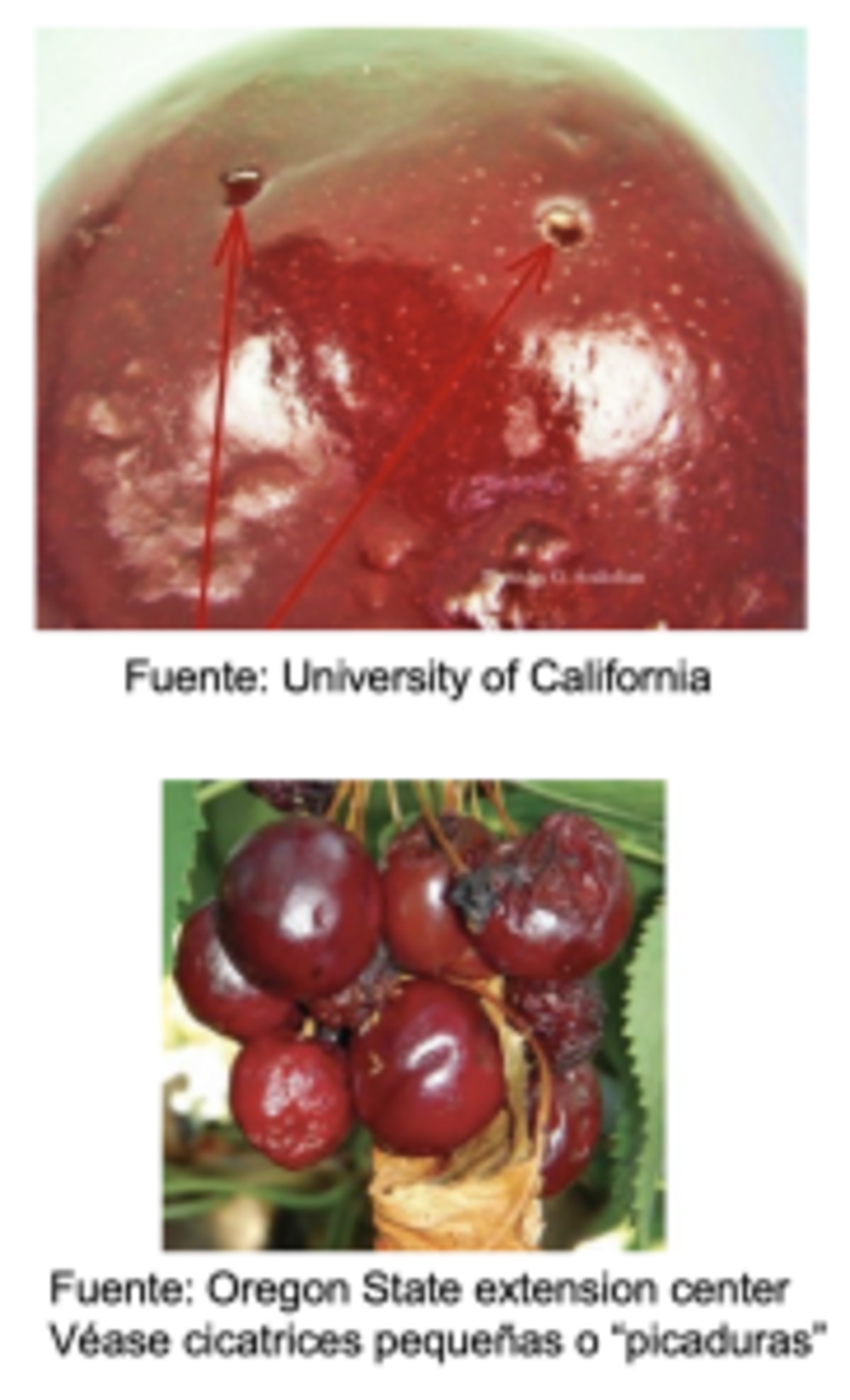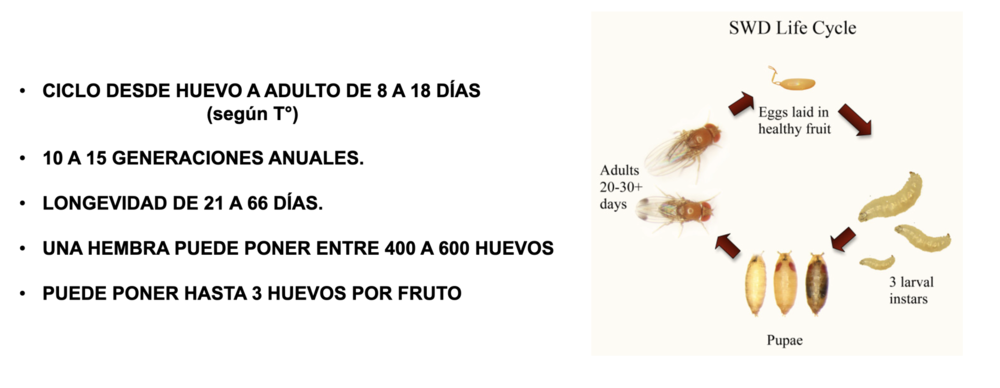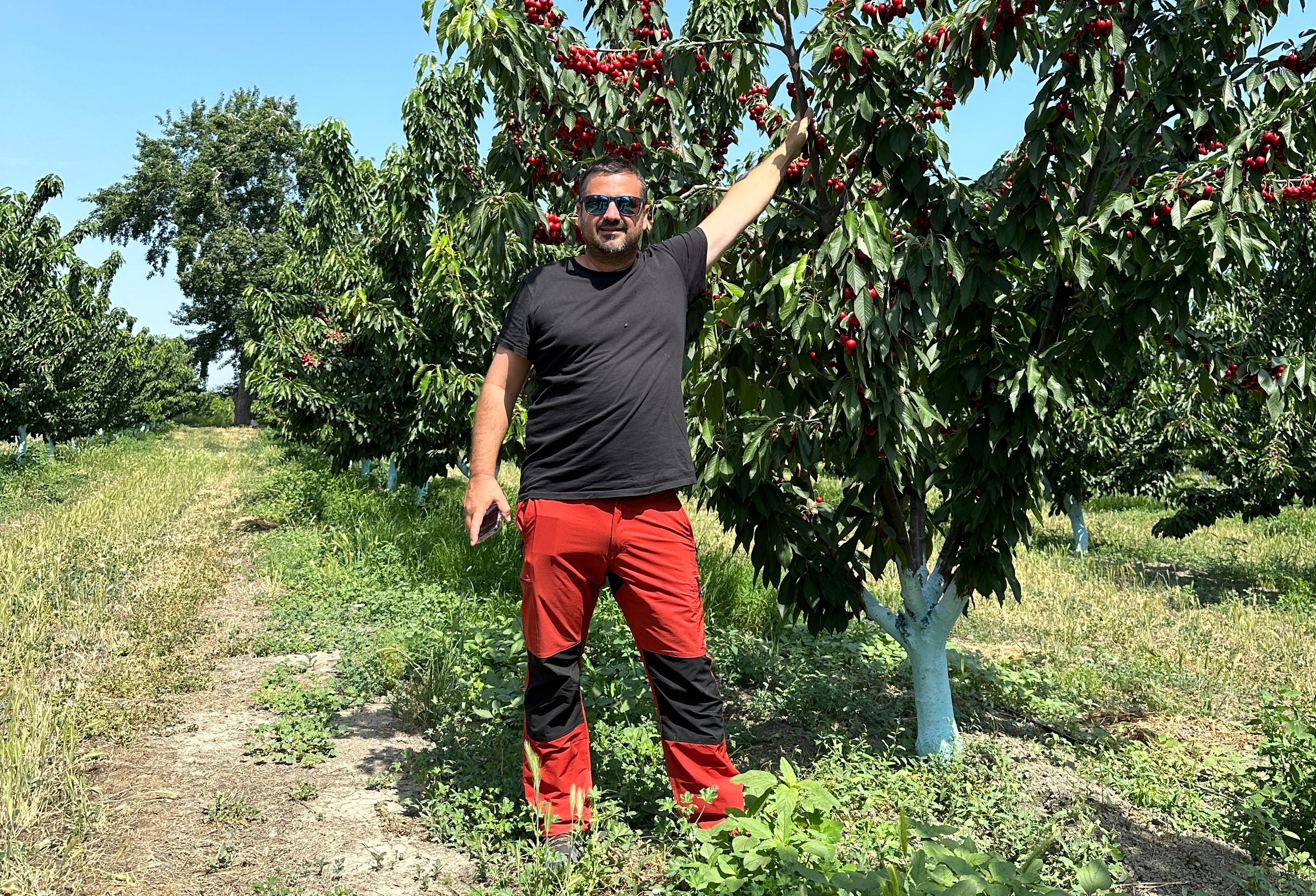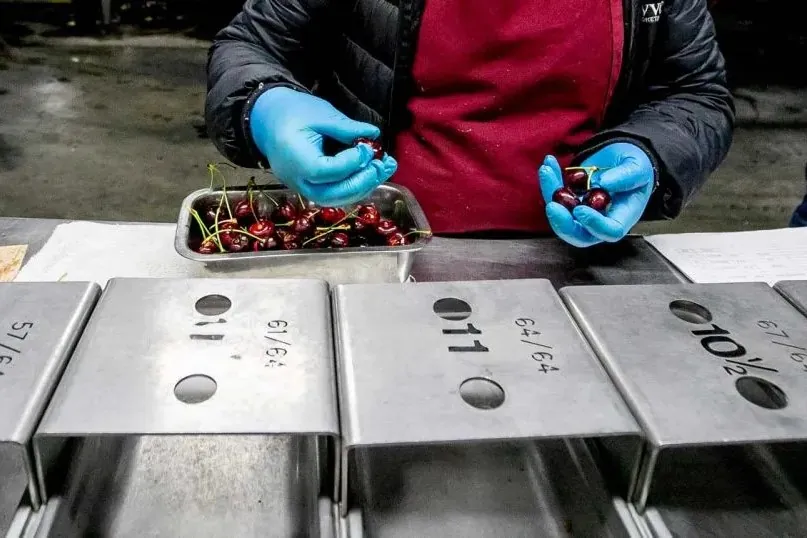The presence of the El Niño phenomenon generated favourable climatic conditions for the development of Drosophila suzukii, a fly that threatens cherry orchards this season. The higher relative humidity resulting from a cooler and wetter spring, especially in central and southern regions, could favour an increase in the populations of this pest from the veraison phase, when the fruit is more susceptible to attack.
Despite the good climatic conditions for the spread of Drosophila suzukii, experts point out that growers have gained more knowledge about the pest in previous years, which enables them to control it more effectively and minimise risks. Although conditions are favourable, the experts believe that the worst is over and that it is now up to growers to keep the situation under control.

Despite the apparent improvement in weather conditions, experts emphasise the importance of monitoring and controlling the presence of Drosophila suzukii in orchards. Mass traps strategically placed in the orchard and surrounding areas, especially where fly host species are present, are recommended.
Surveillance and application of insecticides are essential, especially from the colour break, when cherry trees are most susceptible to this pest.
 1) Ciclo di vita da uovo a adulto tra 8-18 giorni. 2) Tre le 10-15 generazioni l'anno. 3) Longevità tra 21-66 giorni. 4) Una femmina può deporre tra 400-600 uova. 5) Può deporre fino a 3 uova per frutto.
1) Ciclo di vita da uovo a adulto tra 8-18 giorni. 2) Tre le 10-15 generazioni l'anno. 3) Longevità tra 21-66 giorni. 4) Una femmina può deporre tra 400-600 uova. 5) Può deporre fino a 3 uova per frutto.
The experts also emphasise the need for adequate rotation of the active ingredients of the insecticides used, as Drosophila suzukii can develop resistance to the products. They also emphasise the importance of continuing research and development of biological tools such as repellents, chilli and garlic extracts, as well as fungal and bacterial products, to complement control strategies.
In conclusion, despite growers' experience, the presence of El Niño and current climatic conditions require constant vigilance and preventive measures to protect cherry orchards from the threat of Drosophila suzukii.
Source: Cerezos Chile
Images: Cerezos Chile
Cherry Times - All rights reserved












